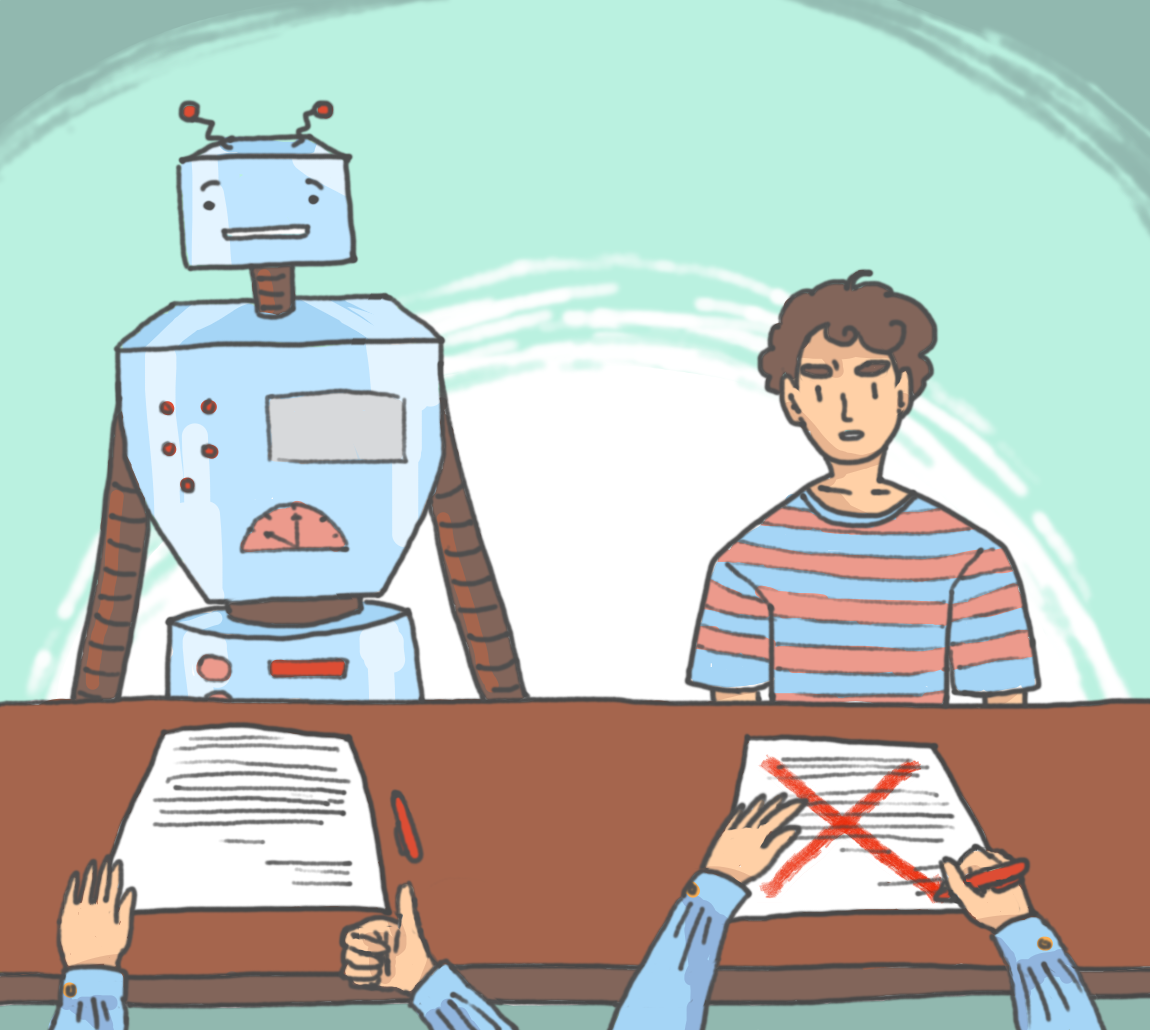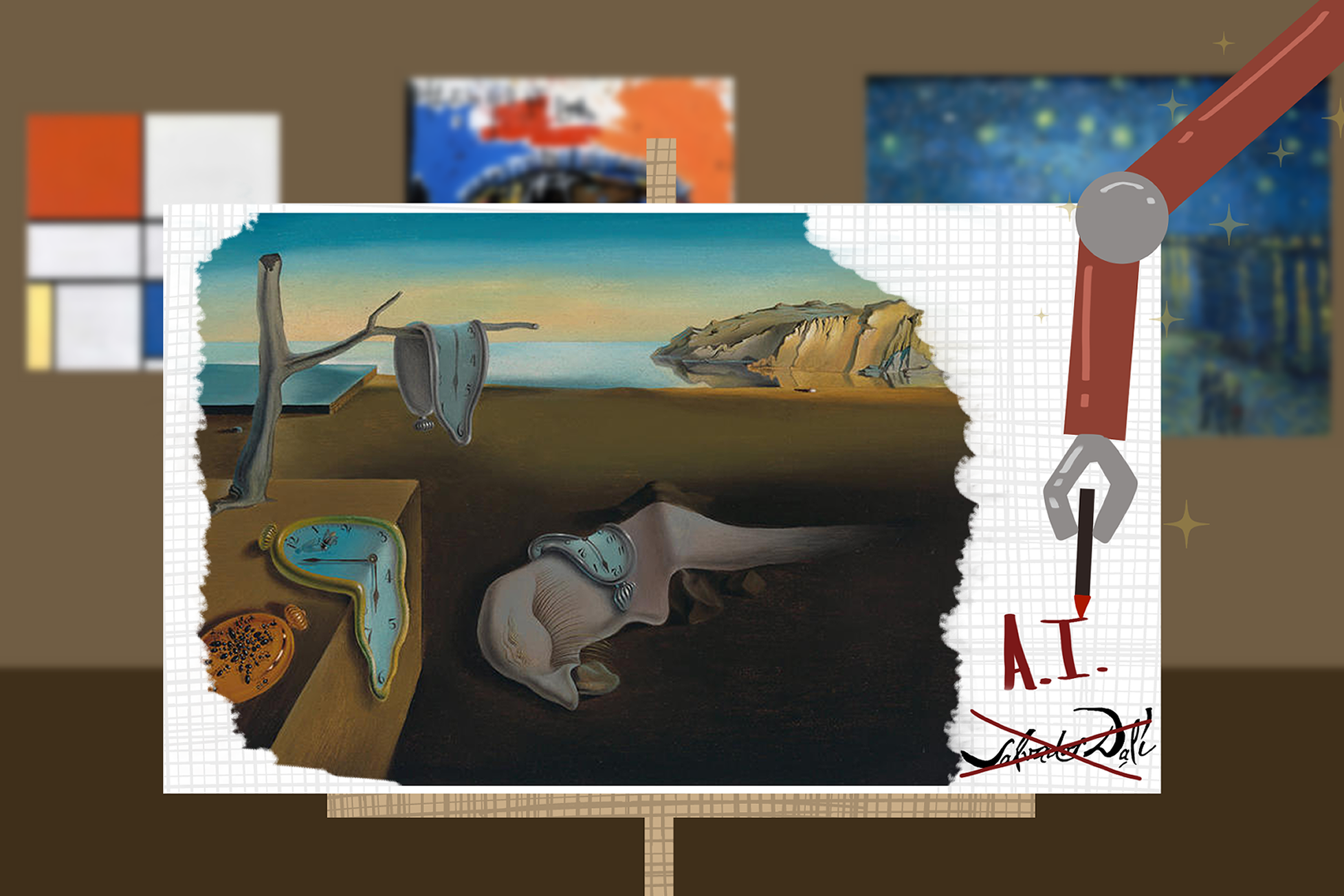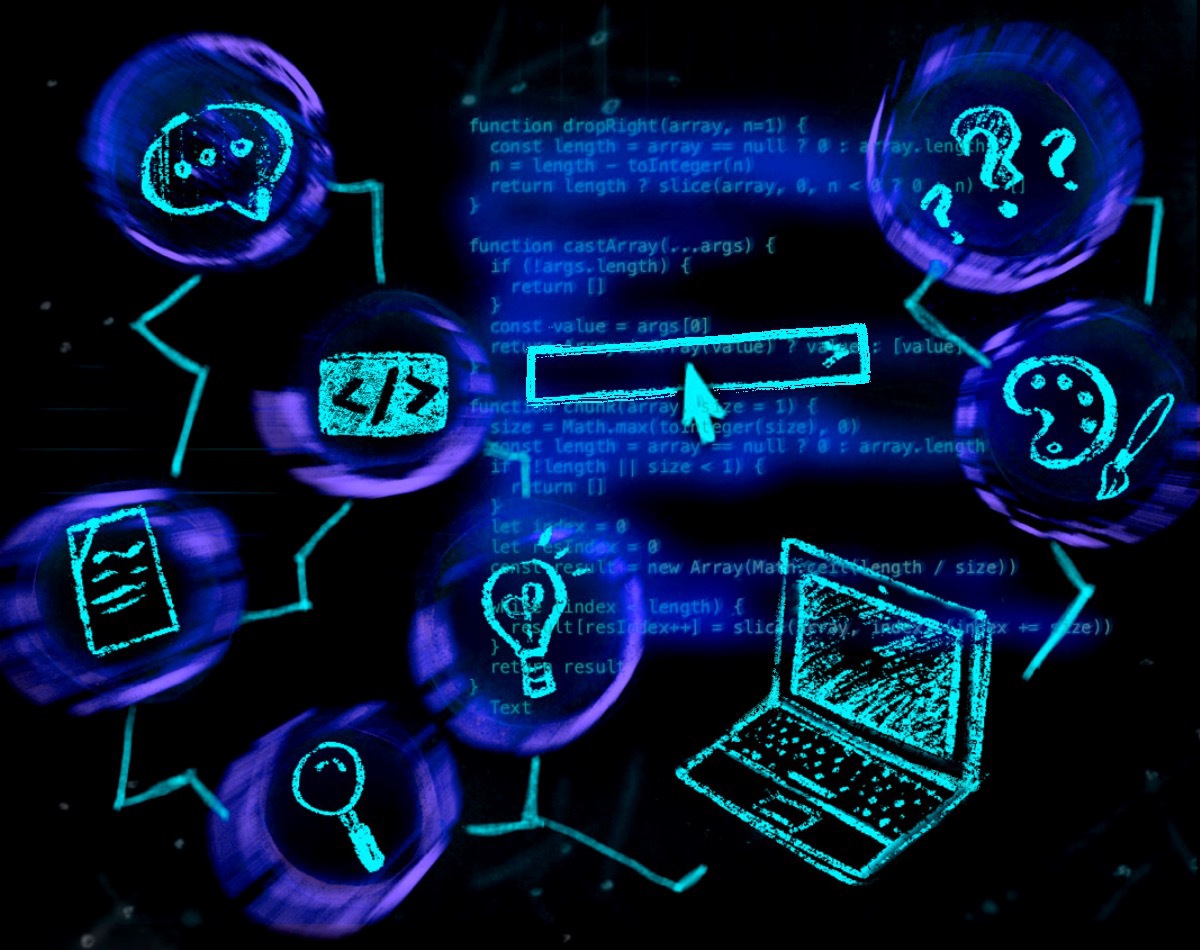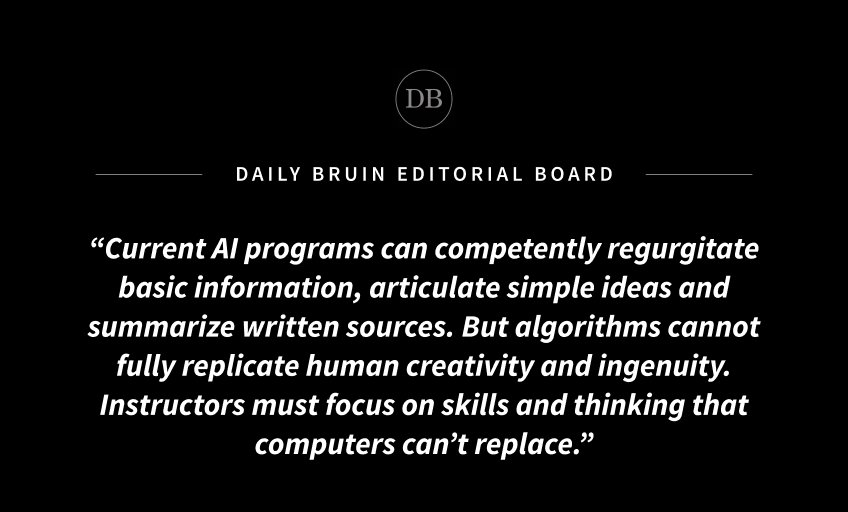(Ashley Ko/Illustrations director)
By Sanjana Chadive
September 23, 2023 at 6:33 p.m.
Back in January, I asked ChatGPT-3.5 to write a story about a prince who secretly enters a chariot race and almost dies because of his recklessness. It was a tale I was all too familiar with.
I had written this exact scene myself over three years ago.
Before I could blink, a 2,000-word narrative about Prince Roderick of Eldoria, the firstborn son of King Edmund and Queen Isabella, materialized on my screen. I scrolled down, skimming how Roderick arrogantly enters the perilous Festival of Galloping Flames, only to find his chariot hurtling toward a cliff’s edge.
I tried to suppress my laughter yet failed miserably. Where did the name “Eldoria” come from? Why was a racetrack near a cliff in the first place? Even though “The Arrogance of the Chariot Prince” by ChatGPT took place in a different world, I had expected some semblance of realism.
As I read over the piece a few more times, I wondered whether ChatGPT’s writing could improve. Despite the lackluster first attempt, I had to commend the artificial intelligence for telling a complete story – exposition, rising action, climax and all – with a clear theme. I wondered whether ChatGPT would one day author full-length novels.
Generative artificial intelligences, like ChatGPT, are systems capable of creating new images and text based on the user’s request. This rapidly developing technology has sparked heated debates among storytellers. While some professional writers are excited about the prospect of AI improving their work, others fear it will make their profession obsolete. This discourse has left Bruins who harbor writerly dreams, such as myself, worried about how AI might affect our career paths.
The ongoing 2023 Writers Guild of America strike has led my peers and I to consider the ethical use of AI in storytelling. The WGA’s West Division tweeted that it is open to using certain AI tools to develop writers’ screenplays but not without receiving their line of credit. Such dialogue has also extended beyond writing meant for the silver screen. In the literary world, over 8,000 authors signed a petition urging AI companies to fairly compensate writers for the use of copyrighted work in training AI.
Yet there are some students who use generative AI tools for their benefit. Rising fourth-year theater student and playwright Sarah Lina Sparks said some of her peers use AI illustrating tools in their creative process. For instance, she said they may type words like “love” or “hope” and use the generated image to jog ideas for their stories. Sparks added that other student writers will brainstorm characters and ask an AI software to generate an outline about them.
“Those (AI tools) can be very inspiring for some people, and then they can help them lead them to their next step,” Sparks said. “Then, it’s really the writer’s job to then take those things and make it into something living and breathing.”
Entertainment industry professionals use AI tools for similar purposes. Neil Chase, a storytelling consultant and the author of “Iron Dogs,” said he uses AI software to be more efficient during the brainstorming and editing process. For example, he mentioned Sudowrite, a platform that employs GPT-3 to analyze a draft’s literary elements and generate the next 300 words in the author’s voice .
If AI is ultimately used to aid and not replace the creative process, then it can be a helpful tool, Chase said.
“In the old days, it used to be the writing was pen and paper or it was a typewriter,” Chase said. “Then we got some really useful tools in the form of computers and word processing programs. … If people use AI as a tool to assist them in the creation of their own original work, then that’s probably the most beneficial way of looking at it.”
Timothy Hickson, author of two volumes titled “On Writing and Worldbuilding” and host of the YouTube channel “Hello Future Me” echoed Chase’s sentiments. According to Hickson, AI was a part of the creative process long before ChatGPT entered the world. For instance, he said random name generators fall under the AI umbrella, and Hickson said there is nothing wrong with using such software to spark ideas.
I don’t know why it never occurred to me that random name generators are technically AI. If that is the case, I have dabbled with AI in my creative process without even realizing it – which I found ironic, to say the least.
In fact, my cherished political fantasy novel spawned from a random surname generator almost six years ago. I began crafting characters inspired by the random name “Ashdown,” and I soon dedicated myself to writing a novel about them. While drafting my passion project, I also spent numerous hours on worldbuilding and story structure – something beyond AI’s present capabilities. AI certainly catalyzed the project, but the draft is ultimately the product of my own mind – I concocted the heart and soul of my work.
Despite the potential value of AI in enhancing the creative process, Hickson said he believes it cannot adequately capture his experiences and emotions. As a lifelong writer, Hickson added that he has no interest in employing AI to completely generate a story because it would not demonstrate the skill he has honed for years.
“They’re tools to aid in your expression and not doing the expressing,” Hickson said. “There’s this huge psychological gap in a lot of AI art between what the creator imagines and intends and what comes up. Until that gap is bridged, it’s hard to imagine that you (the creator) are the one expressing it.”
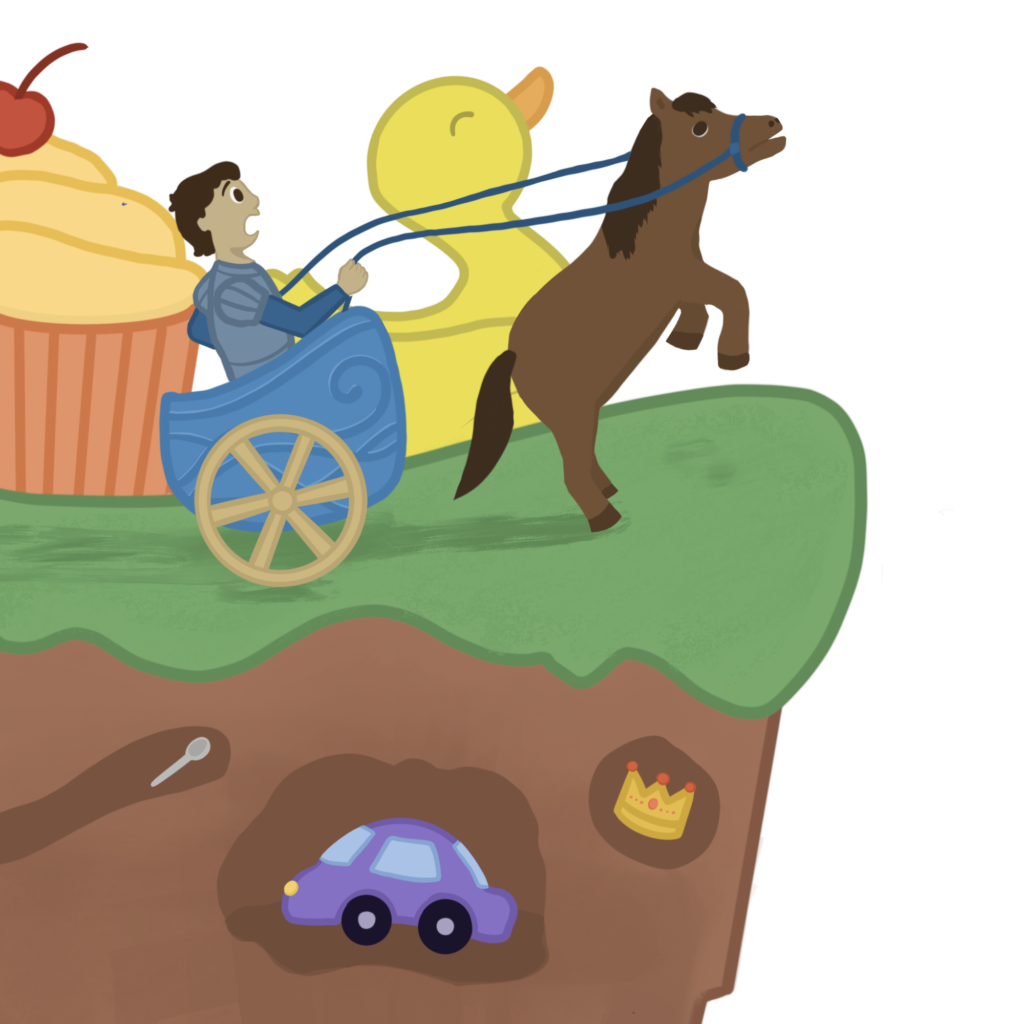
Sparks, who writes plays focused on coming-of-age and her Filipino heritage, said she also has not used AI in her creative process and does not plan on doing so. For inspiration, Sparks said she often draws upon her personal experiences to ground her narratives.
“There’s just so much human feeling in storytelling, and that’s what propels it at all,” Sparks said. “We react to things in unpredictable ways. That’s what makes the story exciting and dramatic, and sometimes comedic.”
AI storytelling tools, such as ChatGPT, gather and comprehend data from sources found online, Hickson said. For example, if I were to ask an AI chatbot to “write a story by Jane Austen,” it would encode various excerpts from the famous author’s novels and generate a short story resembling her literary voice and style one sentence at a time.
However, some individuals have already started using this aspect of AI for nefarious purposes.
In June, romance author Caitlyn Lynch tweeted that she came across a Kindle Unlimited novel titled “wait you love me” by Quynh Thi in the Amazon Teen & Young Adult Contemporary Romance eBooks top 100 chart. Despite being on the list, “wait you love me” had zero reviews and an unedited blurb. These attributes led Lynch to suspect the novel was AI-generated for click farming.
In the same tweet thread, Lynch wrote that if more AI-generated books are published on Amazon, then human-authored novels will perform worse. This would lead authors to potentially withdraw their books from the platform, she said.
Two months later, Jane Friedman, a prolific author on the literary industry, claimed that several new books were uploaded to Amazon under her name.
Yet she hadn’t written any of them.
On her blog, Friedman said she later discovered that someone had used AI to emulate her authorial voice and content to create these texts. The AI-generated novels were taken down within a few days, but the incident shed light on how AI can be used for plagiarism.
Hearing Friedman’s story made me reconsider my own aspirations, as my work could also be susceptible to infringement.
Other writers have similar concerns. Chase said that if the writing profession were to be automated in the future, these crooked actions should be treated as crimes.
“When you see things like this happening, that is not only immoral, it’s criminal,” Chase said. “So clearly there are nefarious parties doing things that shouldn’t be done.”
Aware of these concerns, AI companies are implementing efforts to combat plagiarism and other AI-related crimes. For example, Sudowrite has claimed that they are constantly updating their platform to ensure the maximization of creativity without compromising ethics.
“We’re dead serious about keeping things ethical here,” a Sudowrite representative wrote in an emailed statement. “The generations itself are also designed not to plagiarize. We’re in this for the long haul, committed to making sure AI is used the right way.”
Chase added that AI’s encoding of online content frequently results in unoriginal material. During our conversation, he recounted how a client asked him for feedback on a short script. Chase said he found the script bland and unoriginal, and it felt like it had multiple authors. Eventually, he said the writer owned up to using AI.
Chase’s comment about the formulaic nature of the piece highlights another drawback of AI: It cannot engage in the human experience. Even though AI comprises technologies working together to act and learn with human-like intelligence, he said it cannot experience true emotions.
“The beautiful thing about art … is the merging of the mind and the heart and the soul that helps writers and creators and artists create truly original works of art that stand the test of time,” Chase said.
Alumnus Kris Young, who was also a founder and co-chair of the WGA’s Asian American committee from 2006-2013, expressed a similar sentiment as Chase. He said AI, in its current form, cannot replicate the result of someone’s blood, sweat and tears. Although it is too early to tell how AI will be employed in the writing industries, Young said he is worried audiences may overlook the essence of human ingenuity if they consume more AI-generated content.
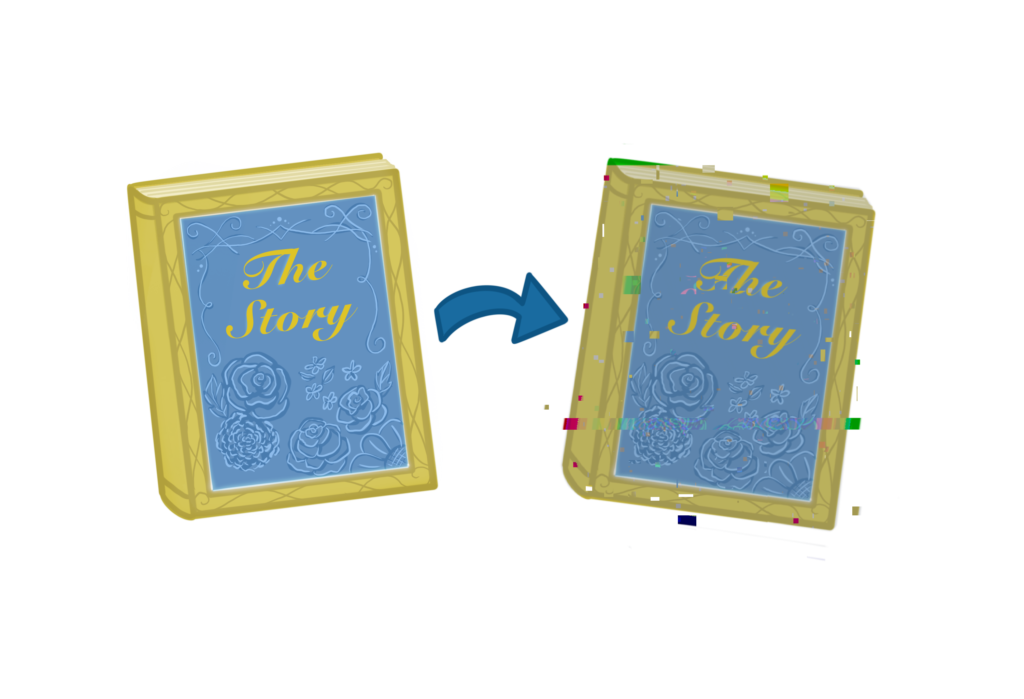
“If AI were to create more and more content … and we never got to hear the Mozarts or see the great films or read the great books of literature, I think that maybe audiences and people in general would not know what is greatness and what is from the heart anymore,” Young said.
Another concern related to AI-generated content is its potential to reinforce and perpetuate discriminatory stereotypes. Since AI is trained on existing human-generated data and patterns, there is a risk for it to amplify and strengthen biases in the content it creates. In 2017, researcher Joanna Bryson studied an AI language generator, trained on myriad texts on the internet, that clustered female names and pronouns with jobs like “receptionist” and “nurse.” These occupations are also associated with women in the real world.
After my conversations with Chase, Hickson and Young, I was left wondering what the near future would look like for students like Sparks and me. Technology has progressed since, well, the history of the world. Each advancement has caused the displacement of different workers. Given this pattern, I couldn’t help but worry if my own dream would ever be fulfilled.
Nevertheless, Sparks said she believes there will always be a place for human-authored stories, no matter how AI improves in the future.
“One of our oldest practices that we have of art at all as a species is that we would tell each other stories,” Sparks said. “We tell each other what happened in our day. We tell each other what we want to happen. We tell each other about our dreams. It’s because the human does dream and the human does have wants and desires and fears, that’s what makes a story a story at all.”
I found solace in Sparks’ words. I initially feared that AI would wipe away years of work, turning my outlines into useless scraps. But Sparks, Chase and Hickson are optimistic that there will be space for my stories – narratives rooted in my distinct lived experiences.
Inspired by my conversation with fellow writers, I opened my Google Drive and clicked on a document ripe with all my outlines and notes. This 50-page file was a testament to how my passion project has evolved over the last six years.
I began typing on the document. I’m unsure what the next chapter holds for my story, regardless of the role AI may play in the future.
But there is one thing I do know: It will be told.
Email Chadive at [email protected] or tweet @SChadiveDB.

